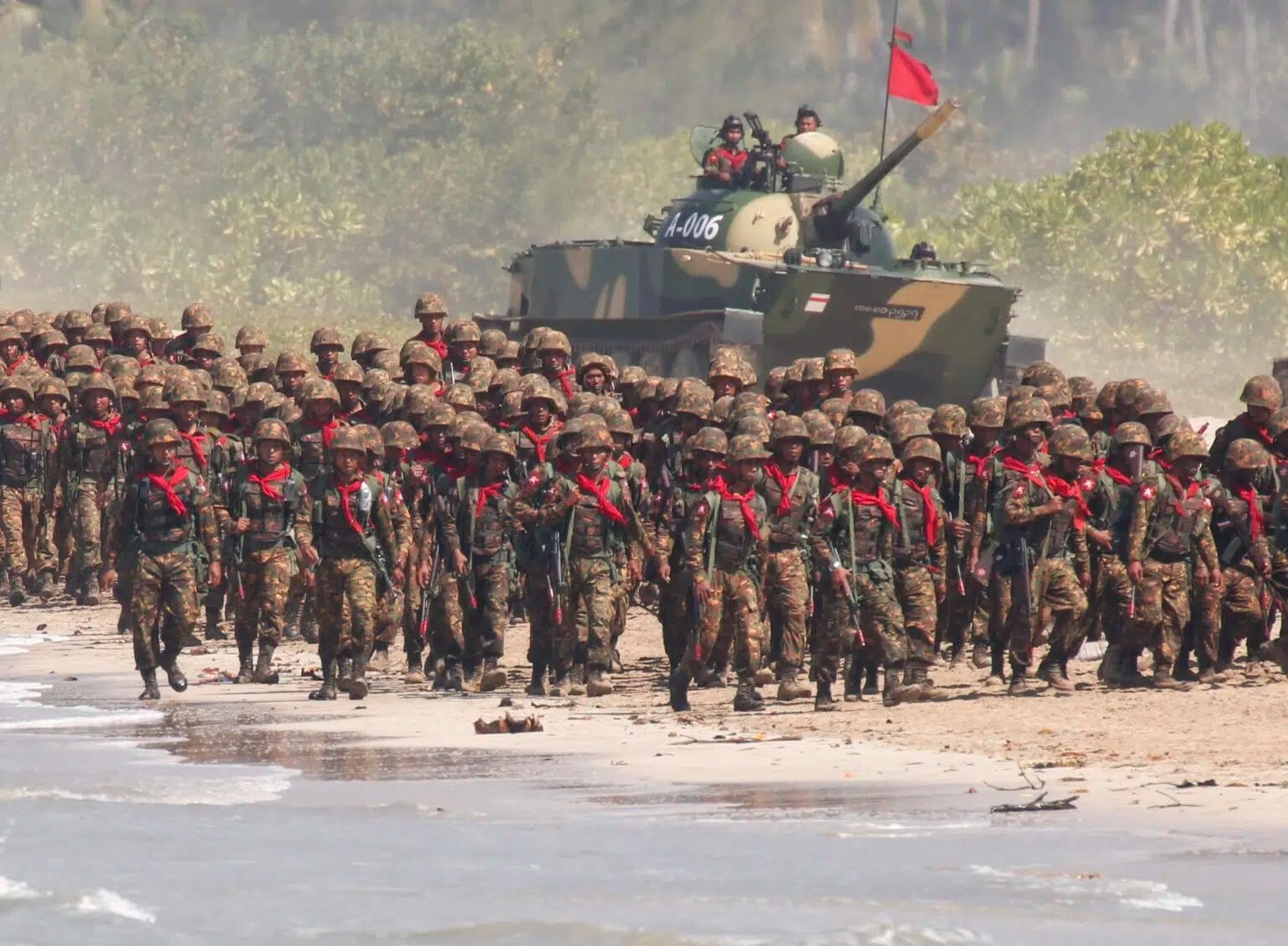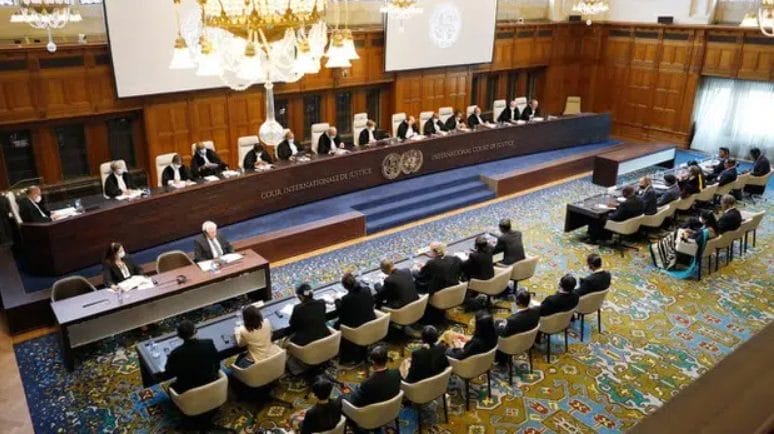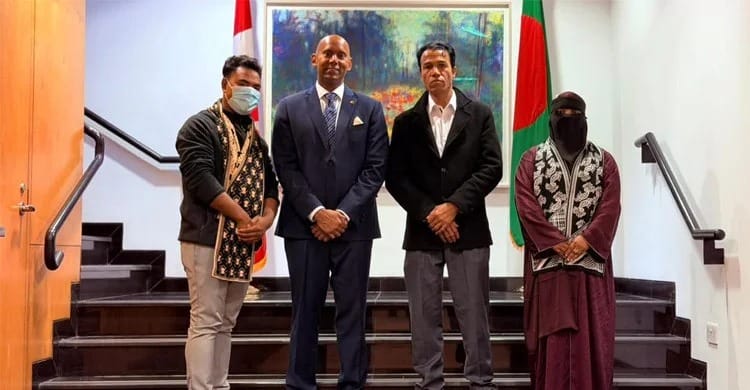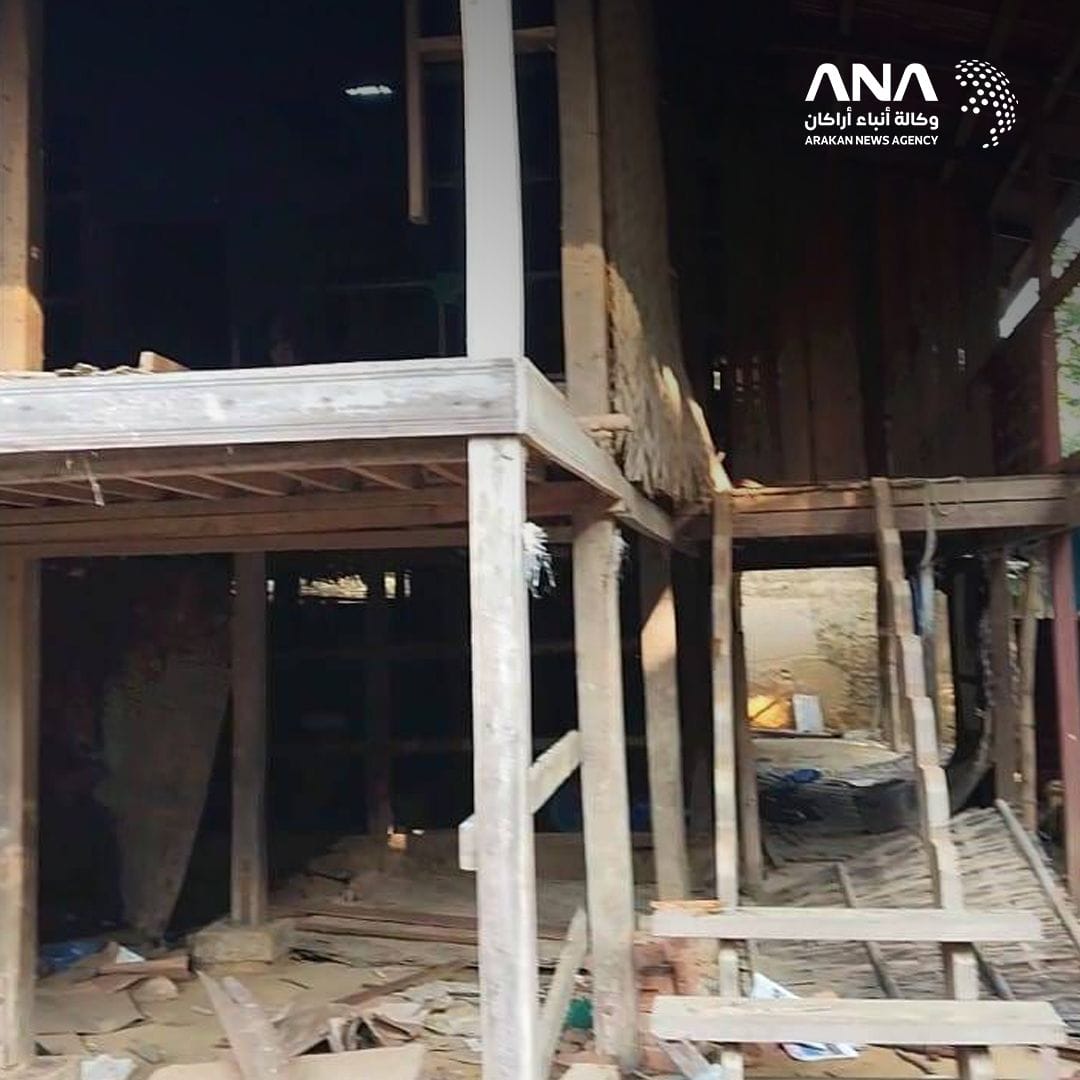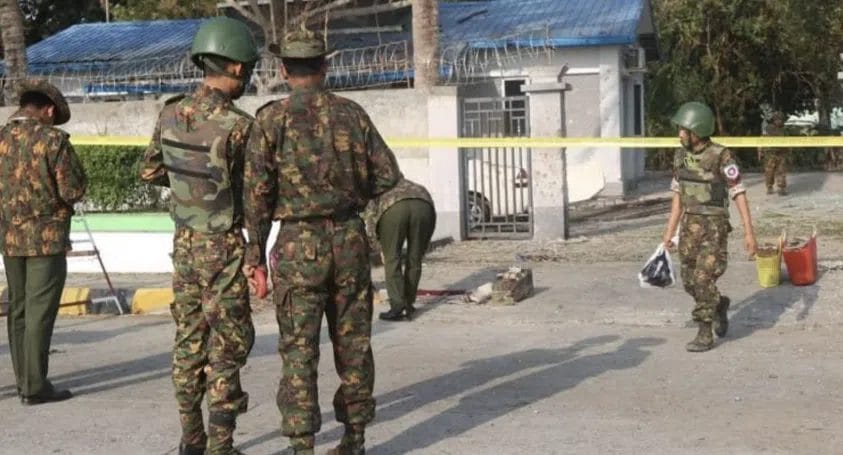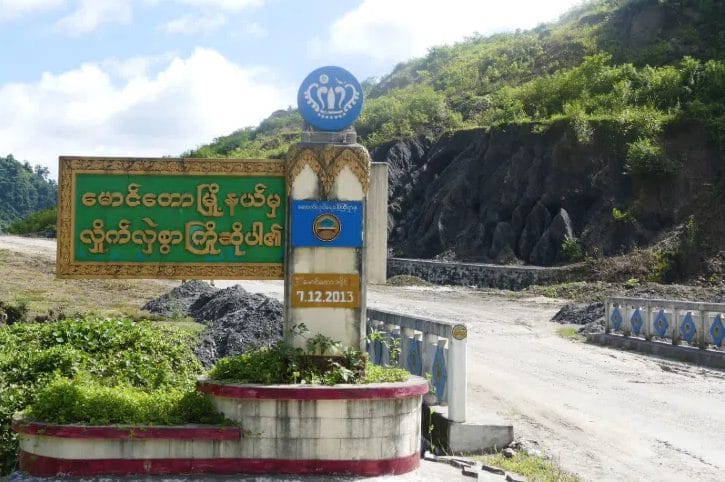Arakan News Agency | Exclusive
As the suffering of Rohingya persists due to lack of food, medicine, housing and education, hope emerges for a better future for Rohingya children through trusted and accredited education systemin Bangladesh camps.
“Rohingya Exam Board” was the idea 53 schools reached to improve the quality of Education for hundreds of thousands of students in community schools in Bangladesh camps despite dwindling funds and crowded classrooms.
Rohingya community schools in Bangladesh camps used to be run separately concerning curriculum and exams, the thing that undermined quality and credibility of the education system.
Fifty-three Rohingya schools from all levels founded the exam board last April as a trial towards a leap in the quality of education in camps, believing that a high quality accredited and coordinated system provides more opportunities for continued learning for Rohingya children.
What does the board offer?
As camp schools worked in a separate and contradicting manner, Rohingya students faced difficulties gaining academic recognition, which shrunk their opportunities for higher education and vocational training.
The council aims to standardize curricula and implement unified examinations and assessment systems, to ensure the authenticity of certificates and improve the quality of education through enhanced oversight and accountability. The council’s ultimate vision is to build a structured education system that benefits Rohingya children and earns the trust of international agencies, potential employers, and educational institutions.
The board is planned to transparently and independently oversee educational activities, examination processes, marking, and results announcements, in addition to coordinating work among all community schools. If successful, the council will enhance students’ academic performance and open pathways for further education and training.
Intensive efforts

“In Myanmar, we followed a well-organized school system that we maintained and managed well,” Alsayed Abdullah, a member of the Examination Board’s education committee, told Arakan News Agency.
“When I arrived at the camp, I observed the school environment and its systems and realized that to improve the quality of education and future opportunities for our students, we need a unified examination board. So, I began discussing this idea with senior teachers.”
Abdullah has worked in five secondary schools in the Bangladeshi camps since fleeing Arakan state in western Myanmar in 2024, having taught students in Arakan for more than ten years. He emphasized that the council’s goal is to bring all Rohingya schools in the camps together under one umbrella.
He told Arakan News Agency that the council seeks to unify and build a strong education system with a single examination platform, so that students are informed and prepared for higher education. He added that the council is in discussions with major universities in Myanmar and abroad and aims to issue certificates through the council that would enable students to apply for higher education anywhere.
“When we launched this initiative in camps 1 to 27, we had no clear idea of the number of schools,” said the Rohingya teacher. “We reached out to our friends and fellow teachers, sent invitation letters, and met with them privately. Some agreed to the idea and signed a letter of approval, while others refused. Those who agreed helped us form an education committee, and now we have a chairperson, deputies, and various positions that enable us to run the system smoothly.”
A changing future

Ansarullah, an 18-year-old Rohingya student in the Bangladeshi camps, said the establishment of the board will be a great opportunity for Rohingya students to receive a systematic education that will enable them to pursue higher education.
“Our teacher informed us that our final exams this year will be conducted using the board’s examination system. I believe this is a great opportunity to have our grades recognized. If there are any higher education opportunities, we may be among the first to benefit”, he told Arakan News Agency.
The young man continued, “Previously, the exam was only for our school. Now, all students in the camp will receive the same exam paper. This means we will have to work harder, study harder, and strive for higher grades.”
Ansarullah emphasized that the new system will increase competition among students across the camps and motivate them to study hard. He expressed his belief that the new system will yield significant benefits and increase students’ chances of enrolling in higher education in the future.
A parent also expressed his great happiness to Arakan News Agency about the decision to establish the Rohingya Examination Board, emphasizing its positive impact on the level of education students receive.

“We recently heard about the implementation of a new examination system in the Rohingya camps, similar to the one used in Myanmar. It involves holding centralized examinations with a single question paper. If this system is implemented in all camps, I believe it will be very beneficial for our children”, Nur Al-Amin said.
The father emphasized that the board’s examination system will motivate students to study harder, and that by working under an organized examination board system, students will have a better chance of progressing and achieving a brighter future.
Given Rohingya’s suffering, their difficult present, and the uncertainty of their future, the establishment of this council is a powerful example of community governance and the Rohingya community’s commitment to self-development and empowering its younger generations.
It is also crucial that international agencies and camp authorities support these plans by providing technical, financial, and academic resources, recognizing and legitimizing the council’s certification system, and helping to raise educational standards and provide better future opportunities for Rohingya students.
More than a million Rohingya refugees live in camps in Bangladesh amid difficult living conditions, lacking access to education, health services, and job opportunities. This raises concerns about the future of Rohingya children, who lack access to quality education or adequate healthcare. It may also hinder their ability to earn a living and expose them to exploitation by criminal groups and human traffickers.
The Rohingya fled to Bangladesh after being subjected to genocide by the Myanmar military in 2017. They have also been subjected to abuses and caught in the crossfire between the Myanmar military and the separatist Arakan Army since the latter launched a military campaign to seize control of Arakan state in November 2023.





